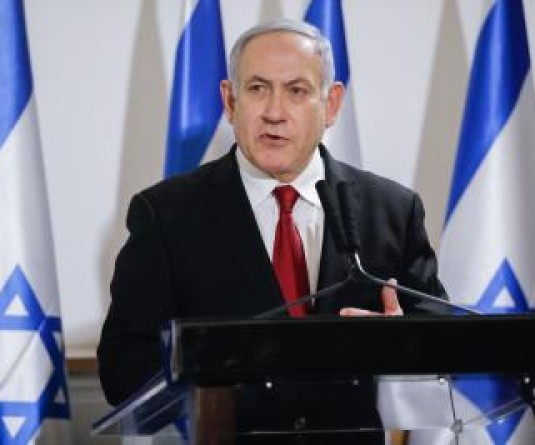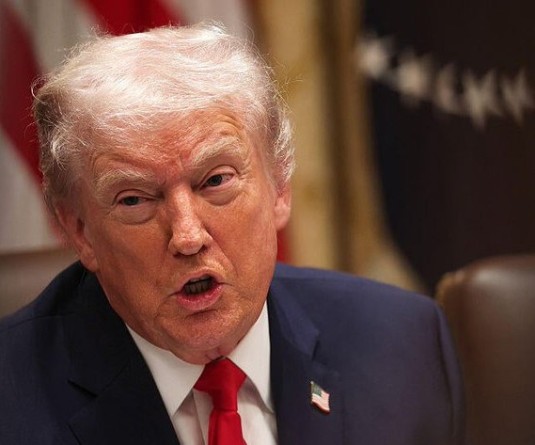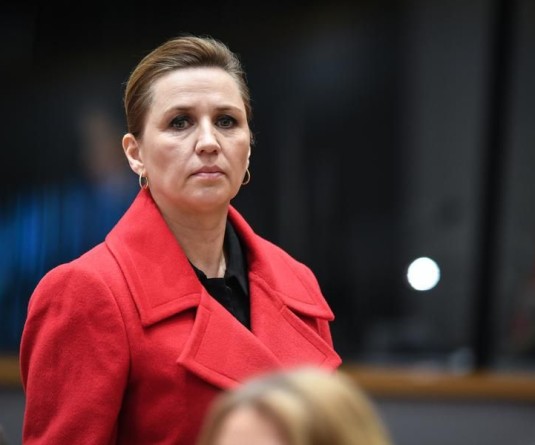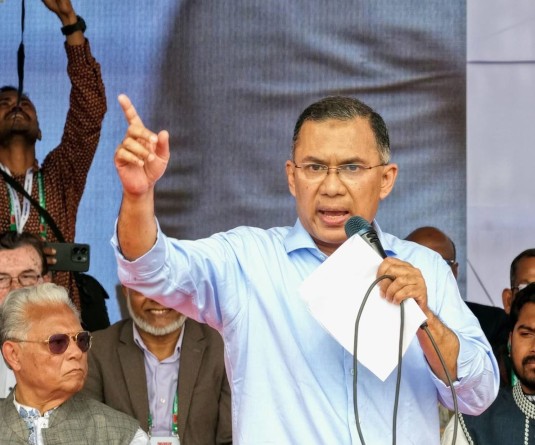A Palestinian searches for survivors under the rubble of a destroyed rooftop of a residential building which was hit by Israeli missile strikes, at the Shati refugee camp in Gaza City, early Tuesday, May. 11, 2021. (AP/PTI Photo)
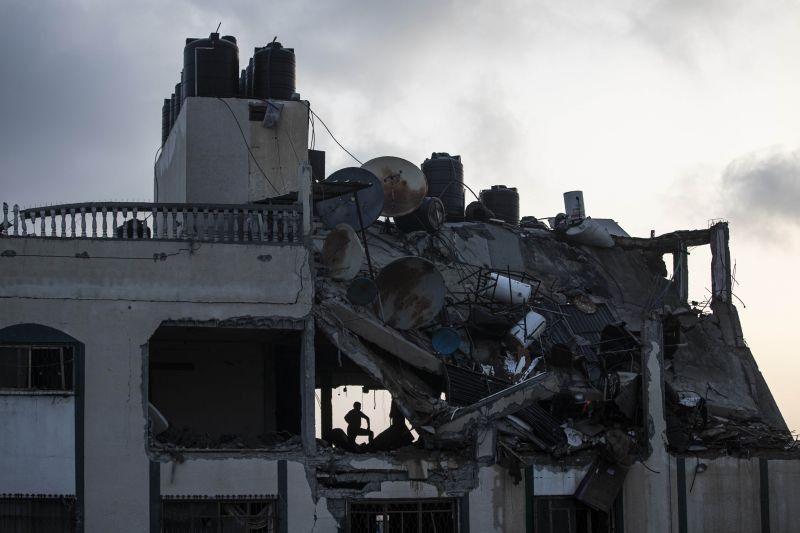
Gaza City, May 11 (AP): Israel unleashed new airstrikes on Gaza early Tuesday, hitting the high-rise home of a Hamas field commander and two border tunnels dug by militants, as Hamas and other armed groups fired dozens of rockets toward Israel. It was an escalation sparked by weeks of tensions in contested Jerusalem.
Since sundown Monday when the cross-border fighting erupted, 24 Palestinians - including nine children - were killed in Gaza, most by airstrikes, Gaza health officials said. The Israeli military said 15 of the dead were militants. During the same period, Gaza militants fired more than 200 rockets toward Israel, injuring six Israeli civilians in a direct hit on an apartment building.
This was preceded by hours of clashes Monday between Palestinians and Israeli security forces, mainly in Jerusalem but also across the West Bank. More than 700 Palestinians were hurt, including nearly 500 who were treated at hospitals.
In a sign of widening unrest, hundreds of residents of Arab communities across Israel staged overnight demonstrations against the situation in Jerusalem, one of the largest protests by Palestinian citizens in Israel in recent years.
The current violence, like previous rounds, was fueled by conflicting claims over Jerusalem, home to major holy sites of Islam, Judaism and Christianity. The rival national and religious narratives of Israelis and Palestinians are rooted in the city, making it the emotional core of their long conflict.
In the past, cross-border fighting between Israel and Hamas, the group that rules Gaza, would typically end after a few days, often helped by behind-the-scenes mediation by Qatar, Egypt and others. It was not clear if that trajectory would be repeated this time.
Israeli Prime Minister Benjamin Netanyahu warned Monday that fighting could continue for some time. Lt. Col. Jonathan Conricus, an Israeli military spokesman, told reporters Tuesday that the military was in the early stages of strikes against Gaza targets it had planned well in advance.
The escalation comes at a time of political limbo in Israel.
Netanyahu has been acting as a caretaker prime minister since an inconclusive parliament election in March. He tried and failed to form a coalition government with his hardline and ultra-Orthodox allies, and the task was handed to his sworn political rivals last week. One of those rivals is Israel's defense minister who is overseeing the Gaza campaign. It is not clear if and to what extent the toxic political atmosphere is spilling over into military decision-making, though the rival camps have unanimously expressed support for striking Hamas hard.
Israeli media have reported that the new round of violence is slowing efforts by Netanyahu's rivals to form a ruling coalition consisting of parties with a broad range of ideologies, but a shared goal of toppling Netanyahu. The support of an Arab-backed party with Islamist roots is key for the anti-Netanyahu bloc's efforts. The party's leader, Mansour Abbas, has essentially said he'll work with the political camp offering the most improvements in Arab communities, but the current tensions over Jerusalem and Israel's Gaza strikes might deter him from joining a coalition, at least for now.
The tensions in Jerusalem coincided with the start of the Muslim fasting month of Ramadan in mid-April. Critics say heavy-handed police measures helped stoke nightly unrest, including a decision to temporarily seal off a popular night-time gathering spot where Palestinian residents would meet after evening prayers. Another flashpoint was the Jerusalem neighborhood of Sheikh Jarrah where dozens of Palestinians are under treat of eviction by Jewish settlers.
Over the weekend, confrontations erupted at the Al-Aqsa Mosque compound in east Jerusalem, which was captured and annexed by Israel in the 1967 Mideast war. The compound, located in Jerusalem's Old City, is the third holiest site of Islam and the holiest site of Judaism.
For four successive days, Israel police fired tear gas, stun grenades and rubber bullets at Palestinians in the compound who hurled stones and chairs. Hundreds of Palestinians were hurt, requiring treatment at hospitals. Two dozen officers were also injured. At times, police fired stun grenades into the carpeted mosque.
On Monday evening, Hamas began firing rockets from Gaza, setting off air raid sirens as far as Jerusalem, after giving Israel a deadline to withdraw Israeli security forces from the compound. From there on, the escalation was rapid.
Conricus, the army spokesman, said Gaza militants fired more than 200 rockets at Israel, with about one-third falling short and landing in Gaza.
The army said that a rocket landed a direct hit on a seven-story apartment block in the coastal Israeli city of Ashkelon. Photos and videos from the scene showed a large blast hole on the side of the building. Israeli paramedic service Magen David Adom said it treated six people injured in the rocket strike. Two were hospitalized in moderate condition.


